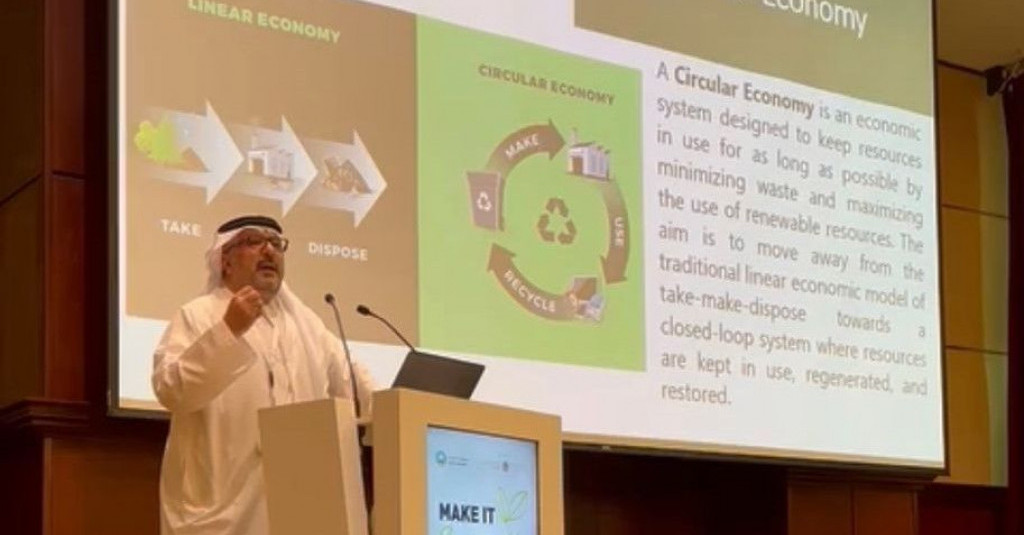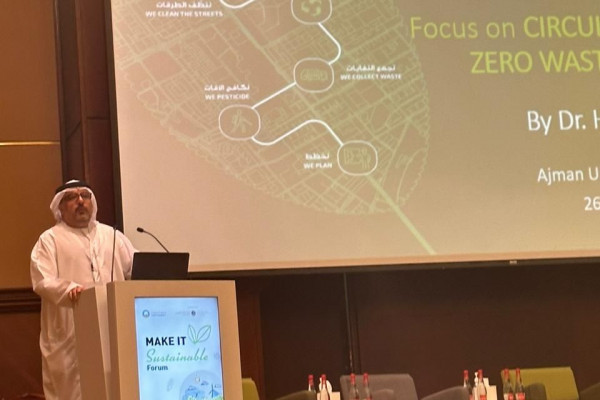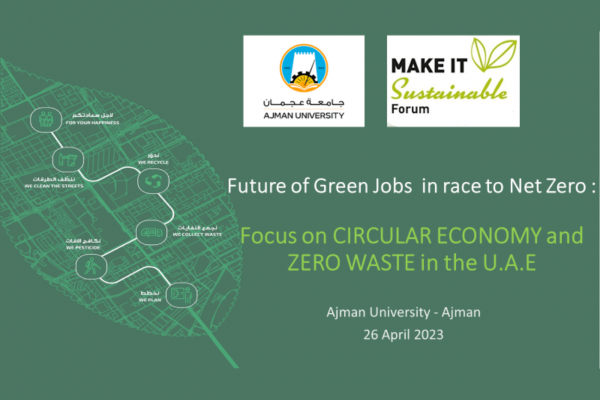News
Ajman University Pioneers Green Jobs and Circular Economy Initiatives in UAE’s Race to Net Zero

In a pioneering effort, Ajman University hosted a key event focused on the future of green jobs as part of the UAE’s ambitious race to Net Zero. Spearheading discussions on circular economy and zero-waste strategies, the university emphasized its leading role in addressing environmental challenges, aligned with the UAE’s Net Zero by 2050 strategic initiative. This event brought together industry leaders and academic experts to explore the intersection of sustainable practices and economic growth.
Dr. Eng. Hani Hossni, a distinguished expert in sustainability and former EHS Director at Tadweer, led the session, providing insightful strategies on how the circular economy and zero-waste approaches can reshape industries in the UAE. His deep expertise, backed by his doctorate in Business Administration from Aston University, positioned Ajman University as a hub for cutting-edge sustainability discourse.
Central to the discussions was the Zero Waste Roadmap. Dr. Hossni highlighted key principles, such as the redesign of product life cycles, reducing virgin material use, and promoting recycling. His vision for a circular economy echoed Ajman University's commitment to pushing the boundaries of environmental responsibility by promoting Extended Producer Responsibility (EPR) and encouraging businesses to adopt sustainable practices.
The standout moment of the event was the unveiling of Ajman University’s initiative to drive green jobs in the region. Green jobs, which contribute to environmental sustainability, are seen as crucial to the UAE’s transition to a low-carbon economy. The University’s collaboration with industry experts and government bodies showcased its leadership in creating pathways for future employment that not only align with environmental goals but also support the nation’s economic growth.
Ajman University’s role in this initiative underscores its dedication to the UAE's Net Zero ambitions and highlights its stature as a center for academic excellence in sustainability. Through events like these, the university continues to make significant strides in integrating academic research with real-world environmental solutions.

